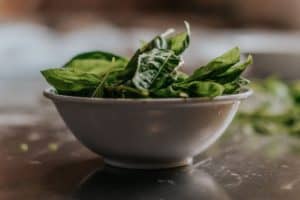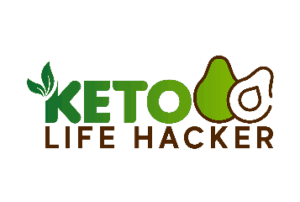When going through the ebbs and flows research on the keto diet, you’ll see a lot of people talking about different types of nutrients and minerals and why some might be especially important on keto. If you’re new to nutrition in general, it’s easy to get confused by a lot of conflicting claims.
One of the most important things to keep an eye on in your keto consumption is electrolytes, and potassium is one of the most important electrolytes for your hydration and energy.
In this article, I’ll get into all the facts on how potassium works, how much potassium you’ll need while in a state of ketosis, and how to best get enough potassium in your daily diet.
What Is Potassium?
Potassium is an essential electrolyte and nutrient, in fact is it the third-most abundant mineral that is naturally found within the body.
The purpose of potassium is to help regulate fluid, send nerve signals to our synapses, and regulate contractions within our muscles.
Nearly 98% of the potassium within the body is found inside your cells. Of this potassium in the cells, 80% is found in your muscle cells, while the other 20% can be found in your liver, bones and red blood cells.
As an electrolyte, it dissolves in the water in your body, turning into either positive or negative electrons that have the power to conduct electricity. Potassium generally has a positive conductive charge.
Your body puts this electricity to use to help manage a variety of processes, including the ones listed above like fluid regulation and sending nerve signals out.
It contributes to this fluid balance by interacting with other important electrolytes, including magnesium, chloride, calcium phosphate, manganese, bicarbonate, and sodium.
Another reason it’s important to get an optimal amount of potassium into your daily diet is because deficiencies in potassium can lead to a lot of complications and problems. Potassium deficiency has been known to lead to weakness, fatigue, insomnia, and constipation. In more severe cases, it can even lead to respiratory failure, paralysis, and painful gut blockages due to build up of other unbalanced minerals in the body.
Most people tend to get their potassium from certain types of foods, but those who follow restrictive diets may need to take supplements in order to get all the potassium that their body requires.
How Much Potassium Do You Need on Keto?
Sometimes it can get a little tricky to get enough potassium while following the keto diet, because a lot of fruits, vegetables, and potassium-rich foods can tend to be high in carbohydrates.
A good rule of thumb for keto is to get around 4,700 mg of potassium per day. For people not following the keto diet, 3000 to 4000 mg of potassium per day is the standard Recommended Daily Allowance.
If you start to notice some symptoms of the keto flu, you may be dehydrated, and might benefit from supplementing up to 5,000 to 5,500 mg of potassium per day to help fully restore balance to your body’s fluids.
While this might seem like a difficult feat, it’s really not through the right keto-friendly foods and supplements. I’ll get into each of those next.
What Keto-Friendly Foods Are High in Potassium?
When following a keto diet, you likely already know to stay away from fruits such as bananas and apples and vegetables such as beets and potatoes. This can be frustrating when trying to reach your potassium goals, because a lot of these fruits and vegetables are great sources of potassium. But that’s alright, there are still a few keto-freindly options that you can eat.
These include:

- Avocados – 1000 mg per whole avocado
- Mushrooms – 100 to 200 mg per cup
- Dark leafy greens (kale, spinach, collard greens) – ~160 mg per cup raw, 840 mg per cup cooked
- Nuts – ~100 to 300 mg per serving, depending on the type of nut
- Red ripe raw tomatoes – 417 mg per cup
- Tuna – 480 mg per 3oz serving
- Butternut Squash – 572 mg per cup
If you have nut allergies or simply don’t want to add any of these foods into your diet, that’s okay too. There’s still a pretty effective way to get the potassium you need through supplementation. I’ve included some of my favorite types of potassium supplements below.
What Are the Best Potassium Supplements for Keto?
- Dr. Berg’s Electrolyte Powder
- Perfect Keto Flu Electrolyte Supplement
- GNC Magnesium Potassium Aspartate
- The Genius Brand Electrolyte Powder – Natural Hydrogen Booster
- Codeage Keto Electrolyte Capsules
- Keto Vitals Electrolytes
Benefits of Potassium
-
Improves blood pressure and cardiovascular health
Low levels of potassium intake has been linked with cases of high blood pressure and cardiovascular disease. While most attribute maintaining low levels of sodium to be a vital part of keeping blood pressure levels low, maintaining high levels of potassium and other electrolytes can be just as important.
It’s also been proven that increasing potassium while decreasing sodium intake plays a major role in reducing the risk of developing heart disease and other conditions of metabolic syndrome.
One recent study found that those who consumed roughly 4,069 mg of potassium per day also had an observed 49% lower risk of death from ischemic heart disease.
-
Replenishes energy and hydrates
As an essential electrolyte, potassium has a lot of power when it comes to replenishing our energy levels and hydrating our body. Potassium helps to maintain a proper fluid balance within the body, alongside other key electrolytes, and assists with other processes such as carrying vital nutrients to the cells, preventing blood clots from forming, and maintaining the body’s overall pH balance.
Because you lose potassium when you sweat, and because keto has been known to cause excessive amounts of sweat, supplementing extra potassium into your diet is an easy and effective way to keep your energy levels up and your body fully hydrated.
-
Helps preserve muscle mass
Potassium’s also important for keto because it plays a role in the storage of carbohydrates for muscle growth, which can help combat muscle loss that some people can experience when already following a fat-burning low carb diet.
Eating a diet rich in potassium can help to maintain an alkaline environment in your body. This is important because when on the keto diet, depending on the types of dairy and meat that you consume, your body can enter a state of acidosis. Acidosis is characterized by a variety of symptoms, including loss of muscle mass. By restoring potassium in your diet, you can reverse these effects.
-
May help prevent kidney stones
Potassium citrate has been found to lower levels of calcium within the urine, which is a primary component of kidney stones. This means that by supplementing potassium, you can effectively reduce your risk of developing kidney stones.
In one four year study that observed 45,619 men, researchers discovered that among those who consumed the most potassium over those four years yielded a 51% lower risk of developing kidney stones.
Similarly in a separate twelve year study observing 91,731 women, researchers found that those who consumed the most potassium yielded a 35% lower risk of developing kidney stones.
-
May help prevent strokes
A multitude of studies have discovered that eating a diet that is rich in potassium may be able to help prevent strokes.
A stroke takes place when there is a lack of blood flow to the brain, usually because of a blood clot somewhere in the body. It’s currently the cause of death for more than 130,000 Americans every year.
In a recent analysis of 33 separate studies including 128,644 participants, researchers discovered that people who ate the most potassium observed a 24% lower risk of experiencing a stroke than people who ate the least amounts of potassium.
Final Thoughts
When it comes to the keto diet, there will be a lot of people saying that you need to supplement this or supplement that, without actually providing any evidence as to why certain supplements are better than others.
While I’m personally of the mind that the best way to get the nutrients we need is through natural foods, I also know that not everyone has the access or ability to foods rich in essential electrolytes. That’s why of all the different nutrients and vitamins that I’ve supplemented, I think both magnesium and potassium are the most worth it.
Staying hydrated is one of the best defenses your body can have against adversaries like the keto flu, fatigue, and worst of all – sugary cravings. By supplementing potassium, I find that I feel fuller longer, and have more energy to enjoy the benefits of keto without having to worry about fighting off cravings and drinking enough water.

